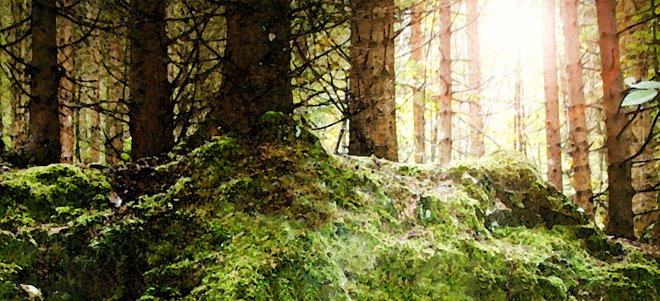 Jesus said, "If those who lead you say to you, 'See, the kingdom is in the sky,' then the birds of the sky will precede you. If they say to you, 'It is in the sea,' then the fish will precede you. Rather, the kingdom is inside of you, and it is outside of you. When you come to know yourselves, then you will become known, and you will realize that it is you who are the sons of the living father. But if you will not know yourselves, you dwell in poverty and it is you who are that poverty."
Jesus said, "If those who lead you say to you, 'See, the kingdom is in the sky,' then the birds of the sky will precede you. If they say to you, 'It is in the sea,' then the fish will precede you. Rather, the kingdom is inside of you, and it is outside of you. When you come to know yourselves, then you will become known, and you will realize that it is you who are the sons of the living father. But if you will not know yourselves, you dwell in poverty and it is you who are that poverty."This is the only statement I have ever seen that makes it clear that there were those in Pagan belief who deemed the Kingdom of Heaven was not only in the sky, or in the stars, or in the underworld, but was also in the sea. Given this understanding the figure of the Mermaid takes on many more shades of meaning. She was the angel of the water realm, the Oceanic valkyrie come to the shore, or the wreck, to take the dead and dying to their place in the afterlife. She was a promise of rebirth. She was perhaps the Peri, or Houri, of an under the Sea paradise as well.
I think such literal interpretation (to think that we go to the oceanic underworld upon death) of religious symbolism was mainly a mistake of the layman, and perhaps a comfort to simple folk, such as sailors. I think the symbolism of the mermaid suggested an under water heaven, but that this was not what was really intended to be understood from her. Much as an egg may symbolize the pre-cosmic bang universe, without meaning the universe hatched from an egg literally.
I ran into a wonderful article today that draws together much of the understanding I had already gleaned, but hadn't had time to organize into an article. The whole article is at this site:
http://www.endicott-studio.com/jMA03Summer/theMermaid.html
That the Celts believed in an oceanic underworld, or after life is suggested in the Lebor Gabala Erenn, when the bard Amergin refers to "the cattle of Tethra" which in the Tochmarch Emire, Cuchulain explains "the cattle of Tethra" as a kenning for fish, and the sea as the plain of Tethra. In Immacallam in Dá Thúarad, the poet , Nede, reffers to "the mighty men of Tethra." To me this seems to say that the fish and the mighty warriors are one and the same, the worthy dead, as are forever feasting in Odin's hall.
Obvious symbols for the soul are small, light, elusive creatures such as the wren, the mouse or bat, and likely we can include the fish now. So we see the fish is not only the Virgin Mother Goddess (virgin because fish are seemingly asexual), but also the soul she births into life.






2 comments:
deep :).
...and far out, dude.
Post a Comment